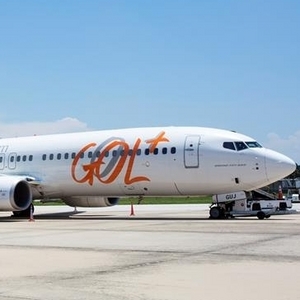Int'l commercial flight completed with Amyris-Total biojet fuel

Photo: Amyris Inc.
August 4, 2014
BY Amyris Inc.
On July 30, Amyris partnered with Brazilian airline GOL to fly the industry's first commercial flight with farnesane, the recently approved renewable jet fuel. The first flight, GOL flight 7725, departed from Orlando, Fla., on July 30 at 5:15 PM ET and traveled to Sao Paulo, Brazil.
The Amyris website includes video footage and photos of the refueling using the Amyris-Total renewable jet fuel, departure of the flight and photography of the aircraft.
GOL committed to fly its Boeing 737 fleet with up to a 10 percent blend of the renewable farnesane fuel starting with this initial flight on July 30. Farnesane can reduce greenhouse gas (GHG) emissions by up to 80 percent compared to petroleum fuels. When blended with Jet A/A1 fuel at 10 percent, farnesane can also reduce particulate matter emissions, decreasing pollution near airports and major metropolitan areas.
Advertisement
The global aviation industry has committed to aggressive goals to reduce its GHG emissions, including achieving carbon neutral growth by 2020 and reducing emissions by 50 percent by 2050 compared to 2005. In addition to improving the efficiency of airplanes and flight operations, this renewable biofuel represents a major opportunity for commercial aviation to reduce emissions. The approved renewable jet fuel is drop-in and can be blended directly with petroleum jet fuel without any changes to airplanes, engines or fueling infrastructure. Amyris will now begin to quantitatively measure the positive impact to GHG emissions and air quality with every flight using the renewable jet fuel.
Advertisement
Related Stories
Global digital shipbuilder Incat Crowther announced on June 11 the company has been commissioned by Los Angeles operator Catalina Express to design a new low-emission, renewable diesel-powered passenger ferry.
ATR and French SAF aggregator ATOBA Energy on June 19 signed a memorandum of understanding (MOU) to explore ways to facilitate and accelerate sustainable aviation fuel (SAF) adoption for ATR operators.
Argent Fuels, a leading provider of carbon-saving fuels in the UK, is accelerating its efforts to support a greener future. The expansion of its High Blend Biodiesel will supply to bus, coach, HGV fleets and rail in the south of the UK.
Sprague Operating Resources LLC on June 24 announced it has been selected by the New York City Department of Citywide Administrative Services to supply renewable diesel for its marine fleet, including the iconic Staten Island Ferry.
On June 17, the NYC Department of Citywide Administrative Services and the Department of Transportation announced the start of the Staten Island Ferry’s transition to renewable diesel, marked by the delivery of the first barge of fuel.
Upcoming Events










